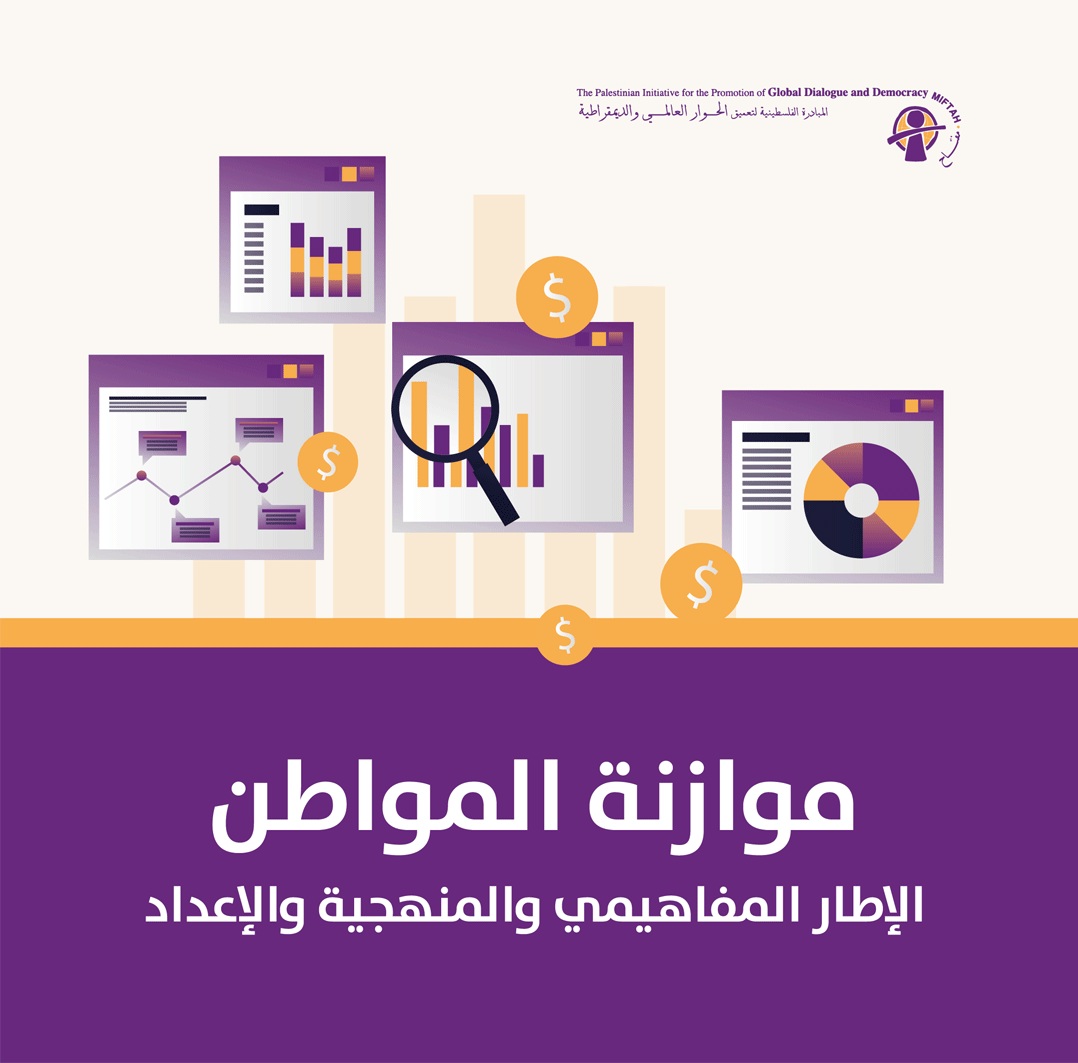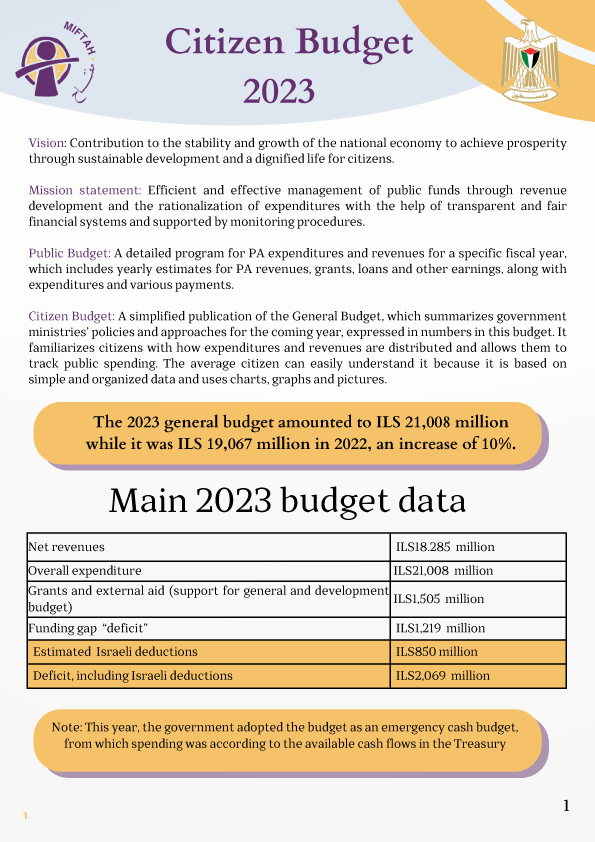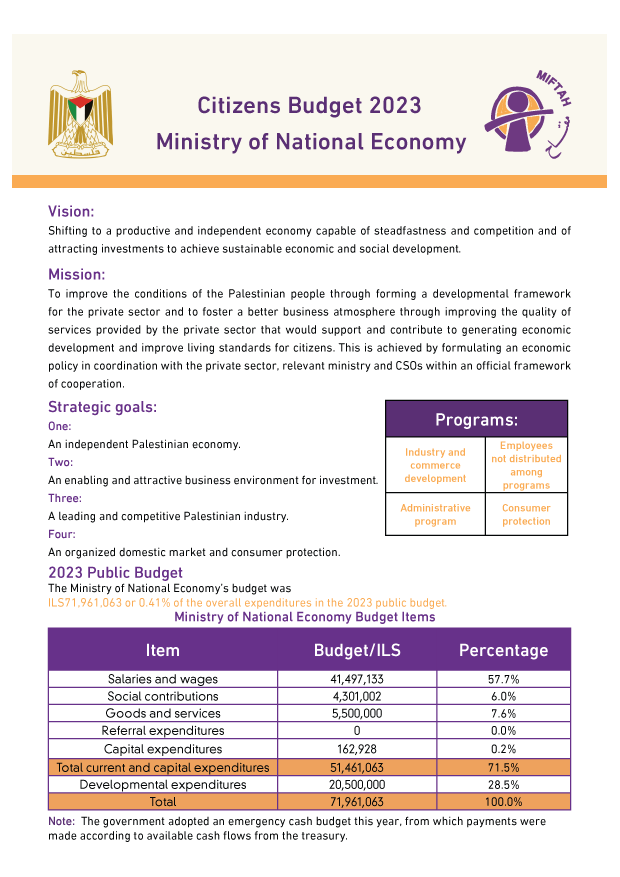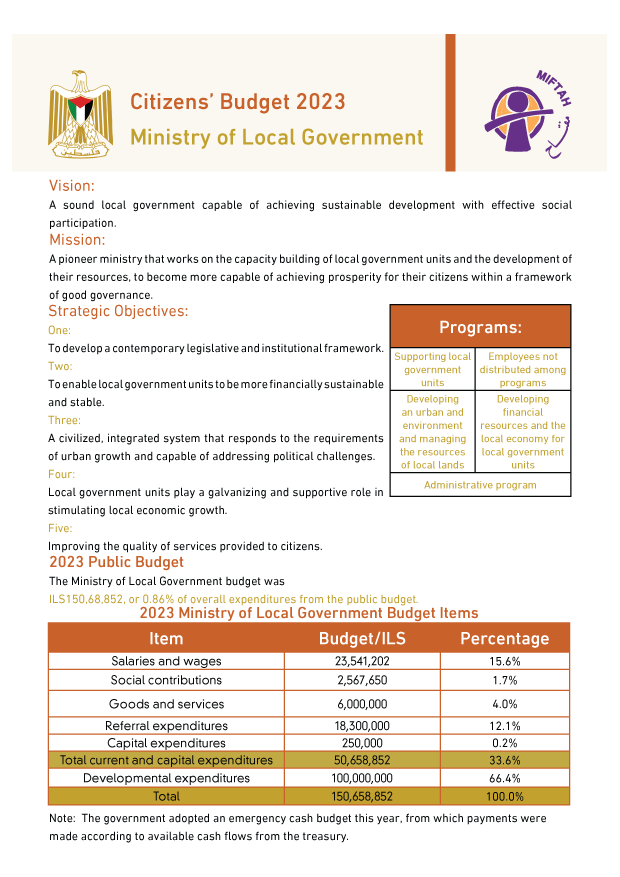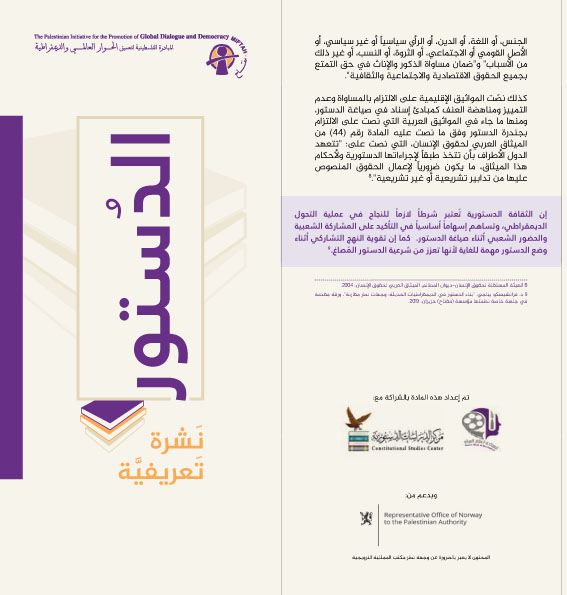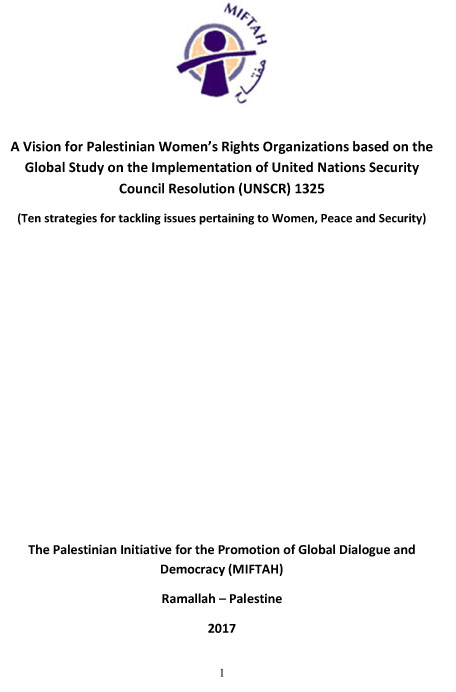'Cake and Vanilla': One story of success
Date posted: May 05, 2022
By MIFTAH

Ramallah – In the village of “Jadeera” northwest of Jerusalem, Sally Suleiman and a group of friends chose an old abandoned building as a launching point for their project “Cake and Vanilla”. Since then, they have consistently increased the sale of their date and nut cookies, first in their village and then later, in areas around and beyond Ramallah and even inside the Green Line. The women now create a quality, well-marketed product after honing their online marketing skills, creating and running their own website and being part of other similar websites to display their baked goods.
MIFTAH: Financial and technical support
Sally and her project partners admit that their success would never have been possible if it were not for MIFTAH’s support, providing them with the necessary equipment and appliances and working to develop their financial administration and marketing skills.
“MIFTAH was a huge support,” Sally says. “It gave us material and technical support, which motivated us to push forward and reach as many people as possible. Today, ‘Cake and Vanilla’ is a household name, not just in Jadeera but in areas in and around Ramallah and all over Palestine.”
Challenges and Obstacles
Sally mostly cites marketing challenges due to competition and gaps in the market in places they have difficulty accessing. She also points to the interminable problem of funding the website. MIFTAH, she says, helped them with ways to tackle this issue through providing them with training in online marketing, website management and funding with the goal of reaching a broader public.
Socio-economic impacts
Sally maintains that the project has tangibly improved their social and economic statuses and has allowed them to become more acquainted with society. She also says it boosted their confidence and their ability to depend on themselves and that their newfound economic empowerment had a positive impact for them within their own households and communities.
Community development project
MIFTAH project coordinator for community development and income-generating projects, Hanan Said, said these interventions with young female university graduates are part of MIFTAH’s efforts to empower women and integrate them in the labor market. The projects also give them the opportunity for financial independence and for developing their personal and professional skills. This, Said maintains, will allow them to carry out an effective role by reflecting the positive impact of women’s economic participation, in addition to elevating women’s statuses in their communities.
The tale of three female university students and their construction materials project
Date posted: February 09, 2022
By MIFTAH
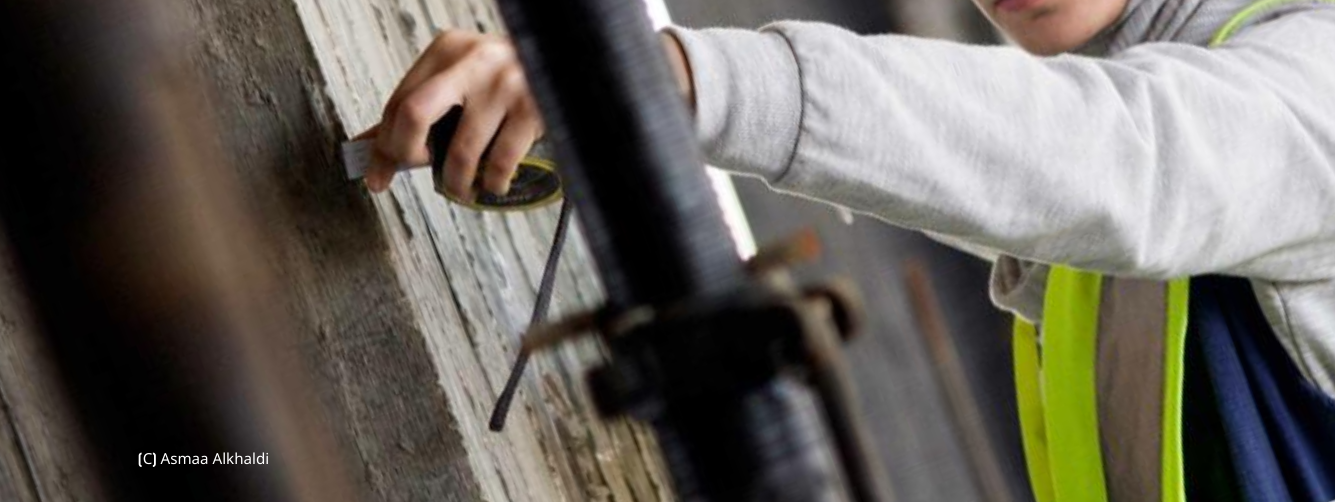
Ramallah – Sarah, Rimah and Aya are three young women from the villages of Beit Iksa and Beit Dukko, northwest of Jerusalem, who ventured into an innovated project like no Palestinian women before them.
The first step on their road to success was MIFTAH, which has and continues to work towards supporting Palestinian women in the West Bank and in the Jerusalem district in particular, by providing small income-generating projects.
Sarah and Rimah are still university students while their colleague, Aya, is already graduated and works full-time with the project. The women tapped into their local communities’ needs, seeing how construction projects were mushrooming in their area. This, they realized, meant they could easily obtain construction materials if they had the means, including jacks and winches.
For Sarah Liqyaniyeh from Beit Ikas, who graduated with a degree in design and décor, their project to rent out construction materials and equipment was a way of fulfilling the needs of their communities. “No other woman or girl has ever thought up this idea before,” she says. “The project entails renting out construction supplies and equipment – jacks and iron elbows and other materials. This is a project that girls and women are probably not used to hearing about, whether in our villages or in other areas. Projects for women almost always revolve around food or embroidery. My colleagues and I wanted to do something different, something only for us, which would allow us to depend on ourselves. So we chose a project that no one has ever done before.”
She continues, “I studied and worked in design and décor and I have also worked in the field at construction sites. During discussions and conversations with my family and others in my village, I heard them talking about buying construction equipment and renting it from outside the village. This is when I had the idea for our project. I said to myself:
Why shouldn’t I be doing this? It’s a sure thing.” So, I pitched the idea to my two colleagues and they were both enthusiastic about it and thought it was a great idea. Our families were also supportive and even our local communities, which helped us find an easy and quick way to obtain the necessary construction equipment and materials. We have reaped profitable financial returns too, and hope one day we will be able to expand. Hopefully, MIFTAH will continue to support us; after all, it was the one that put us on this path.”
Supporting vital projects such as this one for Palestinian women in several West Bank districts has been a MIFTAH intervention for years. It is part of its “Women’s Empowerment” project, which supports small-income generating projects in cooperation with the Arab Fund for Economic and Social Development.
MIFTAH project manager, Hanan Said maintains: “The success story this project was able to achieve, whether in terms of impacting or changing the realities of over 400 Palestinian women and their families in rural areas, cities, or marginalized areas, is that these projects empowered and improved the social and economic lives of women. MIFTAH’s interventions have succeeded in reaching women, particularly the marginalized, in over 70 locations in Jericho and the Jordan Valley, the Ramallah/Al Bireh and the Jerusalem districts,” she says. Said continues that MIFTAH works on an almost annual basis, in cooperation with the Arab Fund, to reach new groups of women in various areas and offer them the necessary support to contribute to their economic participation in Palestinian society, with a focus on Jerusalem and its suburbs.
Through its support for women, MIFTAH seeks to increase opportunities for young women especially, to enable them to participate in the labor market and assume an active and influential role in creating positive patterns of economic participation for women, ultimately elevating their status in their respective communities. MIFTAH takes into consideration the needs of marginalized women by economically empowering underprivileged women through small grants.
Towards gender-responsive public spending
Date posted: January 25, 2020
By MIFTAH
Introduction:
From the beginning, MIFTAH’s approach has been to restructure the means by which public policies are formulated in Palestine, where they are based on good governance and democratic values, participation, the promotion of transparency and accountability and the right to access information. These are mainly based on the values of social justice as a result of how decisions are made and policies formulated in Palestine, which are based on centrality and a disregard for any response to the needs of citizens in formulating policies to the point where executive programs do not reflect the approaches and priorities of citizens.
The efforts made by MIFTAH to reach the stage where public policies are formulated based on support for underprivileged and marginalized sectors, especially youth and women, whereby government spending on the social sector was 37.6% of the total government spending in 2019, coming in second after the governance sector.
These efforts faced several obstacles due to the difficulty in accessing information and data or because of the lack of any institutionalization of systematic partnerships capable of involving citizens in the policy-making process in an organized manner. This would allow for more ability to provide decision-making parties with information on citizens ‘needs and translate them into fiscal policies, which is considered the best method for the fair redistribution of public funds, which guarantees the greatest possible benefit for sustainable development.
As a result of these challenges, the OXFAM-funded program “Finance for Development” constitutes an important space for the development of interventions capable of addressing the challenges to public policy formulation in Palestine. It has allowed for the development of focused interventions based on a careful assessment of the skills of those working in decision-making positions in the social sector, especially in budgeting departments.
Release of actual spending reports for the Ministry of Social Development from a gender perspective
The development of MIFTAH’s interventions took place over three stages, the first of which is the institutionalization of the participatory approach in the MoSD through developing spaces that would enable the relevant parties to become involved in the ministry’s’ strategic planning. The institutionalization process included, at the partnership level, between the MoSD directorates and departments on the one hand and institutions working in the empowerment and relief sector, on the other. The second phase reflected the institutionalization of the joint planning councils, which include representatives of direct beneficiaries of ministry services and which are comprised of youth, women’s and childhood institutions and representatives from the districts, municipalities and police and protection services.
The third stage was the culmination of this approach, through the release of monitoring reports for actual spending from a gender perspective. This was imperative for providing data to measure how much women benefited from the MoSD budgets and its services through the various programs and interventions.
The actual spending report from a gender perspective is the first of its kind in Palestine. It analysed the MoSD expenditures and its provisions for the years 2016-2018 in addition to the distribution of salaries and wages according to the gender of its employees. It also analysed the percentage of women working in upper management and in decision-making and policy formulation departments, in addition to the percentage of women benefiting from the services provided by the ministry in its various programs.
The report aimed to process and to disaggregate data from a gender perspective to be used as measurement indicators for the gaps in the ministry’s spending and budgets. It was also aimed at shedding light on the extent of proximity between the ministry’s spending policies to the needs of marginalized sectors, especially women whereby the report includes important information, crucial in the formation of more just and successful fiscal policies.
The report indicated that the MoSD salaries and wages amounted to NIS45,113,734 of its overall budget, while the salaries of its female employees was NIS23.715,295 even though the number of female employees comprises 50% of the overall number of ministry employees. Furthermore, there is only one female employee in a senior position according to the management hierarchy adopted by the ministry.
The report also monitored the figures and data pertaining to the percentage of actual spending on families headed by women, whereby 64.8% of the overall expenditures allocated for the cash assistance program. Meanwhile, NIS1,975,992 of the overall budget was spent on people with disabilities and the elderly, including women, who comprised 36% of this category. Furthermore, women were granted 39% of the allocations earmarked for the social and vocational rehabilitation program while expenditures for women survivors of domestic violence totalled NIS124,000.
The institutionalization of the participatory approach as a result of networking
This development would never have been realized if it were not for the efforts made through networking with civil society institutions and partners and their united efforts to press for the inclusion of citizens in strategic planning through the participatory approach. This was the result of meeting the interests of partners in achieving the goal of these interventions and supporting their implementation on the one hand, and the result of creating balanced professional relations with duty-bearers and holding serious discussions, the outcome of which was the adoption of democratic, participatory standards that reinforce the values of transparency and accountability.
Because of this networking, MIFTAH has greater ability to influence the way in which policies are formulated because of the ability to provide data on government spending for its programs and to reconstruct plans, which bridges the gaps in spending. It is also able to shed light on the needs of social sectors, especially women, through the redistribution of public spending. It should be noted that the needs of women were taken into consideration in the preparation of the 2020 budget. This was reflected in the increase in spending on programs from which women benefit. Therefore, the 2020 budget is more responsive to needs from a gender perspective.
MIFTAH’s Beit Ijza women:
Accessories and embroideries project aspires for more economic and social empowerment
Date posted: June 11, 2019
By MIFTAH
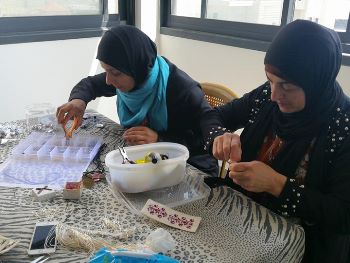
Ramallah -- Five women from the village of Beit Ijza northwest of Jerusalem aspired for a better future and were willing to work for it. Towards this goal, they became part of a project in the hopes that it would set them up to face the demands of everyday life and would empower them socially, mentally and economically.
This was presented to them by MIFTAH through its project “Small Income Generating Projects for Women in Rural Areas”, funded by the Arab Fund for Economic and Social Development. The women’s “accessories and embroideries” project included training and funding for equipment and raw materials.
Three of the five women are housewives who support their households. The other two are teachers at the village school . One of the project beneficiaries, Ghada Mansour said the women’s choice of embroideries and accessories was successful, adding that MIFTAH offered them the sufficient training and funding for its success. At present, she said, the women were busy preparing for a bazaar organized by MIFTAH on April 29 and 30, entitled “Palestinian Women Bazaar for Ramadan” which will include products by women from MIFTAH projects.
Mansour continued, “We are very busy getting ready for this exhibit; all of our products will be displayed. We hope this bazaar will be a good beginning for us to start marketing our products and give us a boost for the future so we can sustain our project and expand it into cities across Palestine and then abroad.” She explains that the women set up a Facebook page entitled, “Accessories and embroideries of the modern woman” on which they displayed some of their work. Mansour says the women also posted on their personal Facebook pages so they could reach as many people and official and popular organizations as possible . “We networked with several women in the business and with local institutions as well, “ she said.
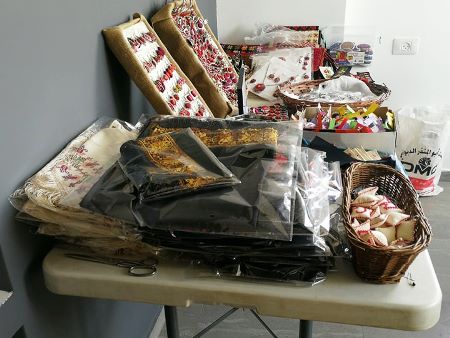
Mansour, along with two of her colleagues, Fadia Diwan (a mother of four) and Ghadeer Abu Kafiyeh (a mother of six), agree that the project had positive and significant psychological ,social and economic impacts, which will most likely increase once their marketing circles expand.
In terms of the psycho-social impacts, three of the beneficiaries said it felt good that they were marketing their own products and were capable of working and giving back to the community. This they said, was after years when they had no assertive role through which they could serve their communities and help their families at the same time. Today, their objective is to further define their project and take it to more successful heights.
Fadiya Diwan, another beneficiary, said the project was a ‘quantum leap in our lives; through it, we were able to move out of our limited circle to a broader one, develop our skills and learn more about other sectors of our society. We hope MIFTAH’s bazaar will be a springboard for marketing our projects so we can become economically viable, bring in a good income and turn a profit.
This optimistic outlook was mirrored by a third beneficiary, Ghadeer Abu Kafiyeh, who said she hoped the project would contribute to increasing their incomes in the future. “I hope it develops more and more so we can achieve the success we aspire for.”
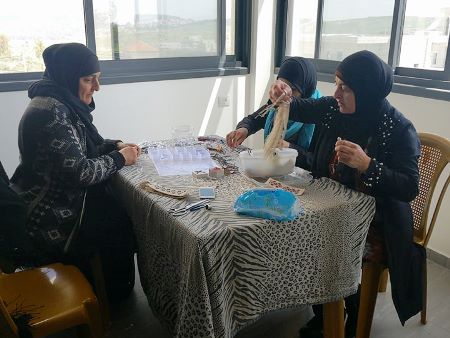
Community leader Jalal Obeido on MIFTAH's impact: knowledge about reproductive health strengthens and protects society
Date posted: February 04, 2019
By MIFTAH
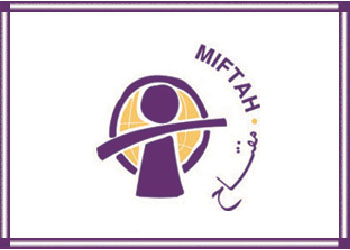
Ramallah: Jalal Obeido, activist and employee at the Agricultural Directorate’s Planning Department in Hebron says MIFTAH’s impact on his experience as a community leader and activist was an important turning point in his education and awareness on citizens’ rights, reproductive health and gender-based violence. He added that his knowledge on these subjects has increased along with many skills he did not previously have in his long years in the field of social work.
Obeido was one of a group of community leaders who took part in several training workshops organized by MIFTAH for male and female activists. The workshops were part of its UNFPA-funded “Support Women Protection” Project.
Obeido said of his participation in the last training workshop on reproductive health rights and gender-based violence, “I gained skills and education on these subjects, including my information on the laws and international treaties on reproductive health rights and GBV and the agreements on combatting violence and discrimination against women. The training helped mold my experience and character as a community leader and bolstered my belief in the importance of being knowledgeable about reproductive health in terms of its importance and protection of society.”
He continued, “Since I participate in many meetings, I always try to speak about this topic even though the people I encounter do not have a comprehensive idea about reproductive health. On the contrary, violence is often perpetrated at this level. For example, women give birth with very short periods of time between them, without any consideration to how important it is to space these births because of the negative affect it has on women’s health. In this regard, there must be family planning in a way that protects women and their physical and mental health. This was emphasized in the last training MIFTAH held and it is my duty as a community leader to explain this to the people I encounter, especially regarding early marriage and the negative affects it has on society.”
The experience and information Obeido acquired from these trainings prompted him to volunteer with several institutions. He said the trainings revealed how interested the participants were in the subject but how little information they had on the topic of reproductive health and gender-based violence and its devastating consequences. He said they were convinced of the need for more training so they could also help to spread awareness on this topic, adding that they wanted trainings to mostly target young people and on mothers and women in their homes. Obeido said it was imperative for those working in the social fields to bring attention to closing the gap between generations of parents and children. To this effect, he makes sure in all of his own trainings that target the youth sector, to focus on their problems in this regard and on how to deal with them. He maintained that he devotes the largest part of the training to discussing the youths’ issues in order to help minimize the problems they face today “especially with the widespread popularity of games such as PUBG and others,” Obeido said.
Obeido confirmed the importance of MIFTAH’s role in affording more attention to youth and women and to supporting women’s rights. He maintained that every group targeted in these trainings will leave an important impact on the lives of the targeted sectors, which will then impact others and so on and so forth. “I hope MIFTAH will offer ongoing trainings such as these and involve all social sectors in them. They should not be limited to one or another sector because these courses have proven to leave positive impacts on everything pertaining to rights and to changing some perceptions, which is the goal we all seek to achieve.”
An imam and female preacher tell their success stories after participating in MIFTAH trainings as part of its 'Support Women Protection' Project
Date posted: January 16, 2019
By MIFTAH

Ramallah – Sheikh Barakat Ziad Hijazi Tamimi, Imam of the Khaled Bin Walid Mosque in Hebron says he is now able to include issues and problems that strike at the core of his community in his daily and weekly lessons and Friday sermons, issues mostly avoided by imams and preachers given their social sensitivity. In particular, these issues pertain to disputes or problems between men and women.
He says the change came after recently participating in a number of training courses conducted by MIFTAH in the field of health and reproductive rights and gender-based violence, which targeted imams and female preachers in various districts, including Hebron. The courses were part of MIFTAH’s UNFPA-funded “Support Women Protection” project.
Female preacher Sajeda Omar Shurafa had a similar experience. Shurafa is a preacher in the Waqf Directorate in Nablus who also participated in MIFTAH’s training workshops She says the capacity building workshop offered her broader knowledge and skills in broaching and raising awareness on social issues related to marital and family relationships in a way that guarantees family stability and social security and reduces domestic violence.
Tamimi said while his participation reaped many benefits, one of the most important of these is that it broadened his sphere of knowledge and information in the field of health and reproductive rights, especially women’s rights and gender-based violence and the importance of renouncing and combatting it. “It created considerable interaction between us and our target audiences. We hope the outreach scope widens even further so we can target more social sectors beyond confining them to lessons in the mosque; we want to branch out to other institutions, clubs, associations, and youth centers so as many people as possible can benefit.”
Tamimi continues that while there were those who were convinced of their message and connected with them, others had reservations. “Still, at least there were discussions and acceptance of what we proposed in terms of social issues and awareness on topics that affect the daily lives of Palestinian families, especially women and children.” He said he hoped MIFTAH would also expand on the issues for discussion, which were posed by the target audience who responded positively to the training.
Sajeda Shurafa, had a similar experience in regards to the impact of the training. “Now we broach many subjects, most importantly, GBV and women’s health and reproductive rights,” adding that these subjects built on previous rounds of training in 2016. “Today, we are more professional and accurate in our message during our sermons and interact with a large sector of society, women. We also hope for more participation from men because their contribution will help create solutions to many of the problems and will give families a more solid ground which will in turn give them more self-confidence.”
Sajeda believes working on the ground would be more effective. “We need to integrate and become more involved in our society’s problems and try to find solutions to them because this will contribute to a more stable society and regulated family life,” she said. Therefore, she continued, “Our role is no longer confined to mosques; our message does not stop there but has spread to schools and organizations and to any place we can reach.“ Sajeda maintained that MIFTAH’s training boosted their ability to broach and interact with problems more efficiently and to contribute to finding solutions to them. “Today we are confronting these challenges head-on and are working to overcome them right away or through coordination with the relevant parties to provide the necessary support for families, women and children.”
MIFTAH makes a difference
Silwan women tell a story of success and steadfastness
Date posted: November 22, 2018
By MIFTAH
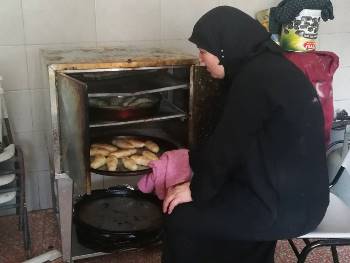
MIFTAH’s choice of “Ein Louza” in the town of Silwan, south of the Aqsa Mosque, was no coincidence. It chose this quarter, one of the poorer areas of Silwan, to implement its project supporting a number of local women and economically empowering them. The project organizers were well aware of the significance and implications of implementing this project here in terms of timing and impact on the beneficiaries and their families.
The “Food Production” project, implemented by MIFTAH through its project “Small Income Generating Projects for Women in Rural Areas”, funded by the Arab Fund for Economic and Social Development was a major success. It reflects the important emphasis on supporting Palestinian women in occupied Jerusalem and economically empowering them in an extremely difficult climate for families in terms of the Israeli occupation and its policy of undercutting their very means of living in order to undermine their steadfastness.
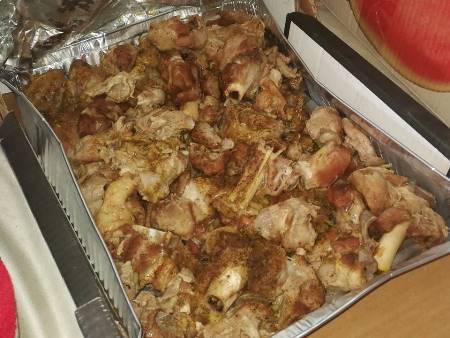
The launching
The “Food Production” project entitled “Delicious Jerusalem Bites” was launched around four months ago, involving five women from the “Ein Louza” neighborhood. From the start, the beneficiaries felt the success. At first the returns were humble, but with such positive reception from the community, these returns have been on the rise ever since.
One of the five beneficiaries, Fa’eda Halabiyeh, explains: “The project includes pastries and other homemade products that we market in our local community based on orders. We provide ready, home-cooked meals to a lot of households.” She says the group of five first started out through a women’s center that reached out to MIFTAH, which she said “provided us with all the support we needed.” Since then, Halabiyeh says the five have each been able to secure a steady income. “We started with around NIS200 a month, then we went up to NIS500 and then NIS700. Today, our monthly take-home salary is NIS1,000 each and we expect this to go up even more in the coming months,” she says proudly, explaining that the net salaries are after store rent, utility bills and other project-related expenses have been paid.
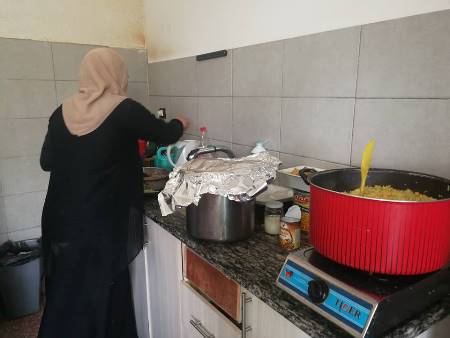
Hopes and aspirations
Fa’eda Halabiyeh says she hopes the project will expand and multiply in profits for the beneficiaries, noting that they are all housewives who financially help with the household. However, she says the most significant impact is that the project has boosted their confidence by building trusting relationships with their community. “Here, we make all sorts of food; different types of pickles, sweets all of all kinds and take orders for ready-made meals, including pastries such as mini pizzas at NIS1 a piece. Most of our customers are students from nearby schools.”
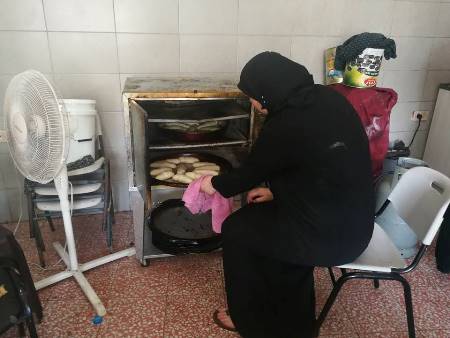
Challenges
Like any start-up, there are always challenges. Halabiyeh says theirs are compounded by the fact that they live in Jerusalem and in Silwan in particular. “It is one of the towns targeted daily by Israeli tax raids, closures, settler and army attacks, etc.,” she says. “This is in addition to the challenges we face regarding high rents”. Halabiyeh goes on: “We work really hard just to collect enough money to rent the place and before we know it, the landlord is knocking on our door asking for rent again.” Still, she maintains, “The challenges only make us stronger. This experience has made us more confident in ourselves; we have won the respect and trust of our community, especially the women.”
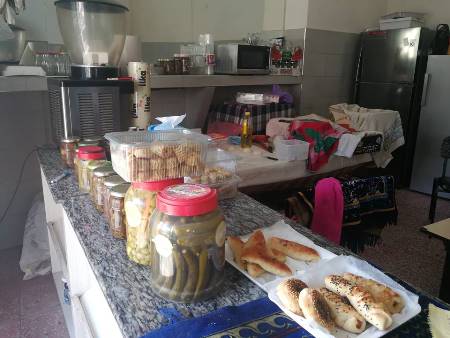
Continued Support
On a final note, the five women said they hoped support for their project would continue to allow its sustainability and expansion, either from MIFTAH or from other institutions that support Jerusalem and empower its women. Halabiyeh mentions their most pressing demands. “We are in desperate need of a refrigerator to display our cold drinks and mineral water,” she says. “We also need another refrigerator to showcase our products to the public, which will help to market them and also attract new customers.”
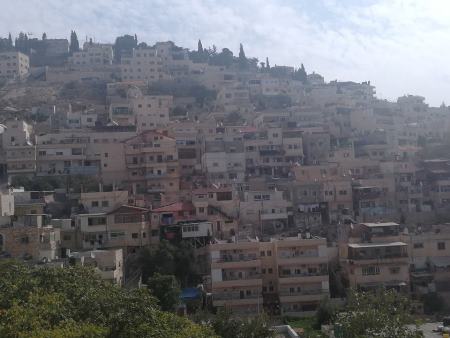
MIFTAH in Beit Dukko: A story of success, aspirations and sustainability in support and empowerment
Date posted: October 17, 2018
By MIFTAH
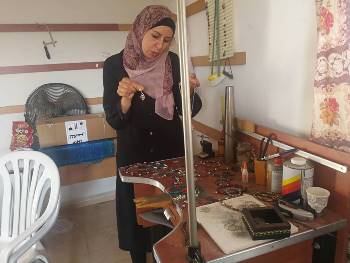
For Fatimeh Morrar and Jamalat Daoud from the village of Beit Dukko, northwest of Ramallah, the success of their jewelry/accessories project was only made possible because of MIFTAH, which has supported the project since 2016. They say MIFTAH has kept up with their progress and development in order to help overcome the challenges faced by some of the project’s beneficiaries. The project began with five women and girls from the village, a number which rose to 10 by 2018. Morrar, a member of the Beit Dukko Development Association and one of the project’s beneficiaries, says most challenges have to do with marketing their products in spite of their popularity, given that they are heritage-themed accessories that highlight Palestinian history and culture.
Morrar commended MIFTAH’s continuous support over the past three years, which she says included two groups of 10 women and girls from the village who completed training in the manufacture of jewelry/accessories in addition to training in management and marketing. Today, they work inside and outside the village and train other girls and women given the demand on their products and the people’s desire to possess things from their heritage.
Both Morrar and Daoud say there are many positive returns from this project, including financial and social returns for girls and women in Beit Dukko. First, they maintain, it provides them with a steady income which constitutes an important part of the family’s income and therefore empowers them economically and allows them to contribute to the wellbeing of the family. Furthermore, the social return is that the beneficiaries are introduced to different social sectors and their circle of relations and influence is broadened through this project and by their participation in exhibits and local bazaars that showcase their products. As such, the returns and benefits of the project continue to increase for the beneficiaries, especially after MIFTAH carried out several interventions, namely networking with the Businesswomen’s Forum on behalf of the project in order to create an even more positive return on the beneficiaries by involving them in local and international bazaars.
Morrar says “marketing was one of our most significant challenges”, but maintained that MIFTAH played an important role in overcoming this challenge, whether by holding more exhibits such as the “Damascus Gate Bazaar” over a year ago where the broader society was introduced to their products; or through marketing these products abroad. “The networking and public relations MIFTAH carried out was extremely important, especially holding bazaars abroad, which contributed to more widely marketing our products and generating even better incomes for the beneficiaries.”
MIFTAH project coordinator Hanan Said says the project coincides with MIFTAH’s approach in supporting and empowering Palestinian women and highlighting the pioneer role of these women in Palestinian society, adding that it falls under the organization’s project “Economic development of communities in marginalized Palestinian areas”. This is a project, which MIFTAH has been implementing since 2008 in cooperation with the Arab Fund for Economic and Social Development. Mrs Said says the project is aimed at contributing to the development of local communities in marginalized areas, especially those in Area C by targeting young women in particular to play an effective and active role aimed at elevating the status of women in these communities. It is also aimed at strengthening the steadfastness of citizens on their land in several Jerusalem-area villages and at contributing to national efforts to combat poverty and unemployment among women and their families in marginalized rural areas.
How MIFTAH’s dialogue sessions helped to promote the role of youth in the PLO
Date posted: June 27, 2018
By MIFTAH
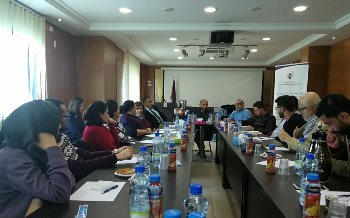
Years after becoming a member of the General Union of Palestine Students [GUPS], Ashraf Taha, a young political activist, discovered that he should have gained membership in the PNC 18 years earlier. Finally, he did succeed in becoming a member of the PNC in its last session held in April 2018.
Taha was one of the youth leaders who was an active participant in the dialogue sessions MIFTAH conducted last year and which it continued throughout this year. Representatives from factions, student bodies and youth groups also participated in addition to the various PLO departments, popular unions and university student council representatives. During the sessions, the most important amendments to GUPS’s bylaws were discussed which would guarantee fair representation for youth in the Union, determine the ages of GUPS members and members of its leadership bodies .
Taha recalls these dialogue sessions and their importance, especially now that he is a PNC member. Immediately after gaining membership, Taha did not hesitate to nominate his successor, a young woman, to take his place after this session given that he is now over 40.
The dialogue sessions were extremely beneficial in that they reminded the youth and the various factions of the importance of their role as youth in decision-making positions and of women assuming the status they deserve in these bodies. This was reflected in the youth document that represents the youth sector in the various factions, which is a guarantee for pumping new blood into the system and renewing its vitality and legitimacy.
Taha said, “MIFTAH’s discussion sessions came at the perfect time. They greatly contributed to bringing viewpoints between youths in factions closer and built cohesive and trusting networks between these youths. These positive outcomes were reflected in the discussions we generated as youth within the PNC about the role of youth whether in terms of the candidacy age or other issues. This made factions give more consideration to its youth and become convinced of the importance of their role.”
MIFTAH project coordinator Hassan Mahareeq commented on Taha’s statement, saying: “There have been many studies and analyses addressing the underlying reasons for the weak participation of youth in public life, including political participation. Most came up against the reality of Palestinian society, whose people are made to endure the daily measures of the Israeli occupation including ongoing arrests, closures and its direct targeting of youth”. In addition, he said, “Palestinian society is patriarchal, which means it is controlled by a traditional leadership, which wants to maintain the status quo even in light of the political division. Based on this reality, MIFTAH looked for sufficient answers to these issues, through conducting an in-depth study of the institutions of the Palestinian political system, namely the PLO. It addressed the most significant hindrances within these bodies and produced solutions in a serious bid to achieve real representation for youth by reviving and reactivating these institutions,” he said.
Mahareeq continued: “MIFTAH used this space from GUPS on which it built all of its interventions in the service of reviving this union, deriving a real platform for youth representation from this youth body within the decision-making bodies and guaranteeing their hierarchical chain in PLO institutions, which is the legitimate channel for their representation.”
Through its meetings and discussions held throughout 2017 and through its contacts this year with all parties of interest, including representatives from political factions, student bodies and groups, PLO departments, popular unions and university student bodies, MIFTAH ensured a commitment from all factions on the need to revive GUPS. The most important amendments to the Union’s bylaws were discussed in a way that would guarantee fair representation for Palestinian youth in the West Bank and Gaza Strip, by considering each Palestinian university an individual branch of GUPS, determining the age of GUPS members and members of its leadership bodies and representation of young women of no less than 30% according to a Central Council decision. These demands were included in the public policy paper sent to the PLO’s Executive Committee as recommendations to be approved after review and discussion.
The participation of student body representatives in political factions in these discussions indicated to their aspirations on the need to revive youth bodies within the Palestinian political system. Several of the youth ran for membership in the PNC in its most recent session, some of whom did gain membership as youth representatives of their factions. This was considered a success for all efforts previously made by MIFTAH and contributed to developing national efforts and directing them towards more attention to this vital issue. It had a direct impact on renewing the legitimacy of the youth component of the Palestinian political system through reviving GUPS and making it a priority for political action for youth.
It should be noted that through its dialogue sessions, MIFTAH was able to rally a consensus over the political youth document, which includes the youths’ vision of a Palestinian state and the political system. This includes the foundations for citizenship and their rights and duties. The articles of the document were adopted by most Palestinian factions, student blocs, youth institutions and the Higher Council for Youth and Sports. The policy paper, which was a product of these discussions and dialogues, confirmed the document’s articles and the commitment by all parties to support youth efforts in political participation and to promote their representation at all political decision-making levels.
With the participation of three ministries in the social sector…
MIFTAH succeeds in influencing fiscal policy towards achieving social justice
Date posted: May 22, 2018
By MIFTAH
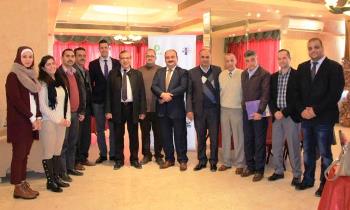
MIFTAH recently completed work with three ministries in the social sector aimed at influencing fiscal policies with the view of contributing to the realization of social justice. The intervention program took place within the framework of the Oxfam-funded project “Finance for Development” carried out by MIFTAH in partnership with AMAN and ARIJ.
The three ministries involved were the Ministry of Social Development, the Ministry of Education and Higher Education, and the Ministry of Health, which are the most closely associated with citizens. A partnership was forged with them to facilitate the adoption of standards of international transparency for public budgets through publishing citizens’ budgets and ensure the implementation of sustainable interventions.
The citizen budget is a simplified version of the public budget of any given ministry, which summarizes the policies, approaches and priorities of that ministry for the upcoming year. The importance of such a budget is in promoting transparency in the public budget and government spending, to open the door for dialogue between civil society and official institutions and to enable citizens to hold authorities’ accountable vis-à-vis their declared obligations. Prior to MIFTAH’s interventions, the Ministry of Finance and Planning had been publishing a voluminous and massively complicated public budget law annually that is not easily accessible or understandable by ordinary Palestinian citizens given its complicated tables and highly specialized language.
In this regard, MIFTAH coordinator Tamara Tamimi, who has followed work with the ministries from the start said, “Its success stems from the interventions with the three ministries in sustaining and institutionalizing the adopting of standards of international transparency for budgets in ministries most associated with citizens. This has become part of these ministries’ approaches.” She pointed out that building partnerships and supporting the official establishment is a wise strategy to reinforce the political will of the official establishment and its adherence to the principles of good governance. Tamimi added, “An increase in the transparency of the public budget in turn leads to expanding spaces to influence fiscal policies in order to advance for social justice.”
Course of action with the three ministries According to Muayyad Afaneh, project consultant and expert in participatory budgets and standards of international transparency for public budgets said, “Work with the Ministry of Social Development began in 2015,” corroborating Tamimi’s statement that the goal of this was to impact government policies towards more transparency in social-related ministry budgets. He said one of the goals was for “employees in the planning and budget departments to acquire skills and expertise in preparing the citizens’ budget given that this is one of the criteria of international transparency of public budgets.” He said this was achieved, thanks to much cooperation, through a training course for the budget and planning teams in the ministry. This was followed by practical training to internalize concepts, skills and knowledge among the trainees. “This intervention was successful in achieving the 2016 Citizens’ Budget for the Ministry of Social Development for the first time in Palestine,” Afaneh said.
He added, “In 2016, cooperation continued with the Ministry of Social Development, horizontally expanding, in addition to cooperation with the Ministry of Education and Higher Education, following the same methodology. In 2017, the citizens’ budget for the Ministry of Education was released for the first time in Palestine in parallel with the Ministry of Social Development’s citizens’ budget for the second consecutive year.”
In 2017, cooperation between the Ministry of Social Development and the Ministry of Education continued whereby expansion was again horizontal with the Ministry of Health and according to the same methodology. This resulted in the successful production of the 2018 citizens’ budget for the Ministry of Social Development for the third consecutive year, the Ministry of Education and Higher Education for the second year and the Ministry of Health for the first time ever in Palestine.
Expansion was also vertical with the Ministry of Social Development through the preparation and publication of a guidebook on preparing the ministry’s citizens’ budget, which also serves to ensure the sustainability of the interventions with the ministry and provide them with a reference document for preparing and publishing the citizens’ budget. Furthermore, the Ministry of Social Development began working according to the methodology of participatory budgets for the first time in Palestine, through building the capacities of the joint planning groups with the necessary knowledge, skills and expertise to apply participatory budgeting in the ministry.
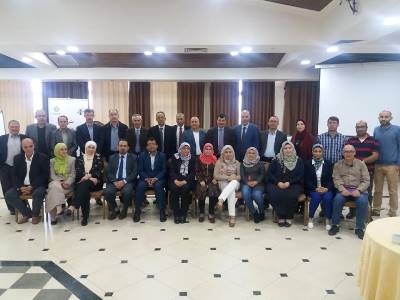
The successes
The main success of this process was to localize the interventions and institutionalize the adoption of standards of international transparency in the targeted ministries as opposed to being a passing project. The success was in issuing the first citizens’ budget in the history of Palestine for three ministries so closely associated with the citizens and, in turn providing a space for dialogue between civil society organizations and official institutions in order to impact fiscal policies and contribute to increasing their responsiveness to citizens’ needs. The localization of interventions was a reflection of MIFTAH’s philosophy to empower the official establishment within the framework of strategic partnership with necessary skills and knowledge, which contributes to promoting the political will to adopt standards of international transparency for ministries and hence reflect these in regulations, measures and strategies.
The peak of MIFTAH’s success with the Ministry of Social Development is the inclusion of the citizens’ budget and its preparation in a participatory manner with all relevant sectors, in the social sector’s strategic plan for 2017-2022. This was accomplished in a workshop for reviewing the 2019-2021 plan and allocating the necessary budgets for this. This reflects the earnestness and willingness of the ministry to promote the principles of good governance.
On his part, Deputy Minister of Social Development, Mr. Daoud Al Deek said, ‘The citizens’ budget is a step towards promoting transparency and a solid approach for reaffirming the right of citizens to access information and then enable them to exercise their role in social accountability.”
14 Emil Touma Street,
Al Massayef, Ramallah
Postalcode P6058131
P.O.Box 69647
Jerusalem
972-2-298 9490/1
972-2-298 9492
info@miftah.org




